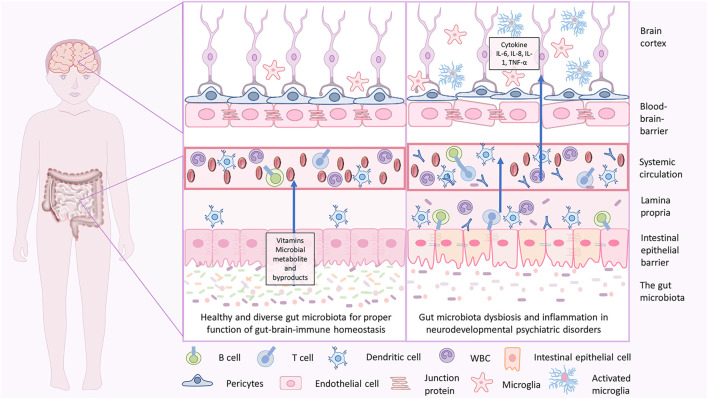FIGURE 3.
Gut-brain homeostasis and inflammatory mechanisms in neurodevelopmental psychiatric disorders due to gut brain dysbiosis. In infancy, the dysbiotic gut is characterized by less diverse microbiota with an abundance of pathogenic microbes, less beneficial microbes, and disrupted gut epithelial barrier with consequent GI tract-related disorders. When severe, the pathogenic microbes may cross through and enter the blood, which holds a massive immune response and releases inflammatory cytokines that lead to inflammation. Cytokine imbalance can induce microglial activation in the brain, which again causes neuroinflammation. This is associated with a disruption in brain development, and delay in neurodevelopmental subsequently may lead to NDD and NPDs.

